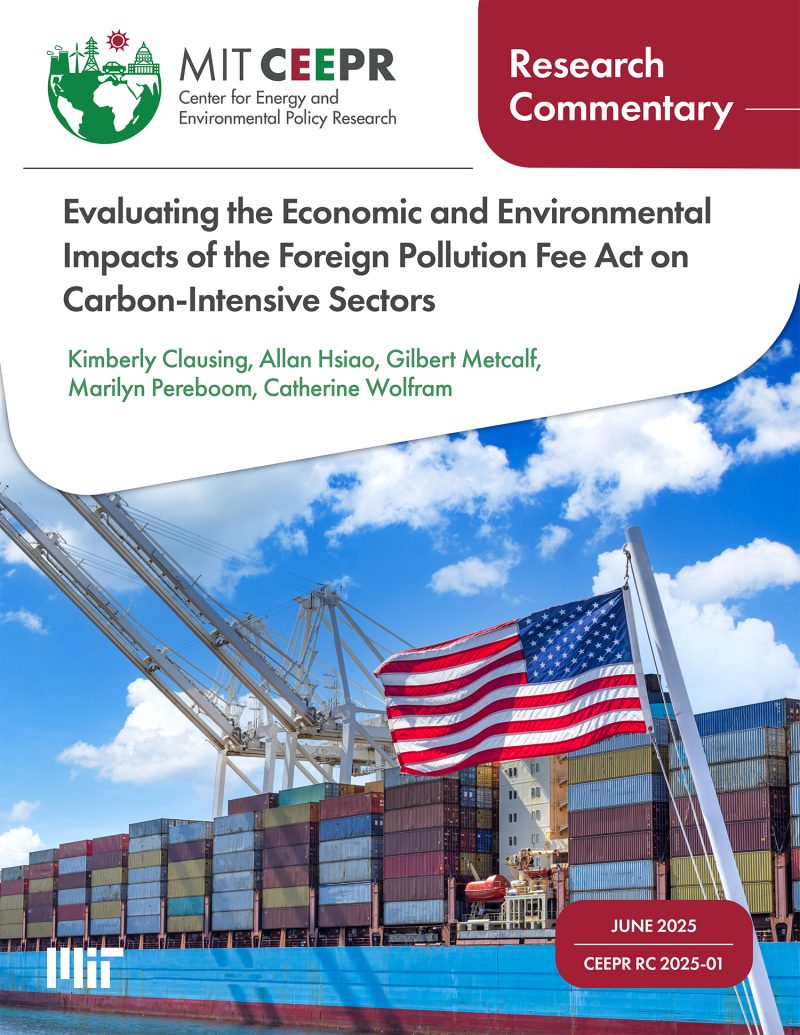Evaluating the Economic and Environmental Impacts of the Foreign Pollution Fee Act on Carbon-Intensive Sectors
Kimberly Clausing, Allan Hsiao, Gilbert Metcalf, Marilyn Pereboom, Catherine Wolfram
June 2025
On April 8, U.S. Senators Bill Cassidy (R-LA) and Lindsey Graham (R-SC) introduced their latest version of the Foreign Pollution Fee Act (FPFA). The bill levies a tariff on imports in certain industrial sectors, proportional to the carbon emitted when the good was produced abroad. The co-sponsors of the bill present it as a way to level the playing field for US manufacturing, which in many industrial sectors is less carbon-intensive than production in countries it trades with. As Sen. Cassidy noted in the bill release, “Other countries can decrease their cost of manufacturing by 20 percent by not enforcing the laws we take for granted. This means they take our jobs too. This is wrong.” Sen. Graham added that, “It is long past time that the polluters of the world, like China and others, pay a price for their policies. […] We are leveling the playing field, and American manufacturers and business will be the biggest beneficiaries.”
Without taking a stand on the extent of the competitive disadvantage to US production due to federal regulation of air pollution in general and greenhouse gas pollution in particular, this research commentary analyzes the new bill and assesses the potential impacts on several economic and environmental outcomes. The analysis draws on a model developed in Clausing et al. (2025) and simulates the reshuffling of global trade relationships when carbon tariffs are introduced. This commentary addresses the following questions: How does the FPFA’s proposed fee structure impact domestic production and prices? How does the proposed fee structure impact imports and exports? What are the revenue impacts of the FPFA? We also consider the impact of the bill on US and global carbon pollution. Our analysis focuses on three energy intensive, trade sensitive sectors: aluminum, cement, and iron and steel.



